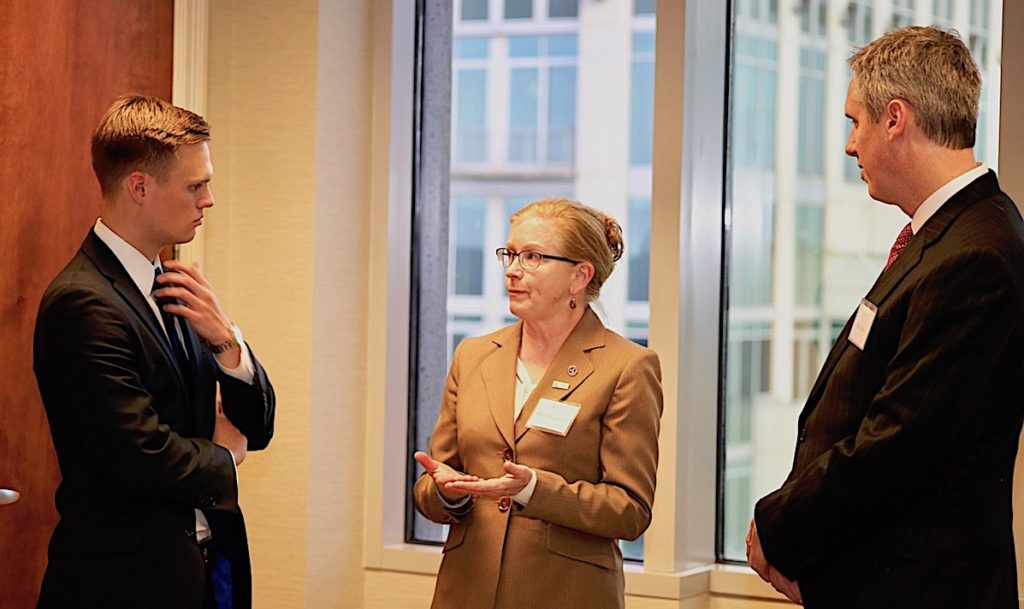Three University of Tennessee College of Law students spent the spring semester gaining valuable experience related to their career interests through the newly conceived Semester in Residence in Nashville.
The Semester in Residence offered students hands-on legal experience that aligned with their interests in working with either a government entity or a non-profit organization. In this first year of the program, Kevin McNelis was placed with the Tennessee Administrative Office of the Courts; Jon Fromke, with the Tennessee Office of the Attorney General; and Zachary Carden, with the Tennessee Department of Environment and Conservation.
Students began their semester with a day-long boot camp in Knoxville. Then they moved to Nashville where they worked 30 hours per week in a 15-week placement and took a two-hour class that focused on state administrative law. Students worked closely with their on-site attorney supervisors, faculty supervisor Paula Schaefer, and with adjunct professor and administrative law judge Tom Stovall.
Fromke said the Semester in Residence provided him with a more comprehensive education.
It “allowed me to observe every phase of litigation in multiple cases, including preparation for an upcoming trial. I observed and participated in realtor interviews, witness preparation, depositions, motion practice, hearings, settlement negotiations, and all team meetings, just to name a few,” Fromke said.
Fromke, who describes himself as a hands-on learner, said the “real-world application” was invaluable.
“I was able to ask questions as they arose. My supervisors were excellent teachers and were always willing to explain the thought process or purpose behind some facet of litigation,” he said.
Professor Zack Buck assisted with developing the placements in Nashville and said Fromke’s experience is typical of what the Semester in Residence aims to accomplish.
“A clear upside of the program was that our students were able to dedicate the majority of their work weeks over the course of a semester to the placement,” Buck said. “Other law schools’ programs, and many other externship programs, don’t allow for the type of comprehensive participation—for a full semester—that our students were able to experience.
“That, I think, is invaluable because students get a truer sense of what the work is like at the placement day in and day out, as opposed to the picture provided had they only worked there a handful of hours each week.”
Mary McCullohs, an assistant attorney general and senior counsel with the Tennessee Attorney General’s Office, said having Fromke in the office five days a week was incredibly beneficial.
“It allowed us to involve him in a wide variety of experiences, both mundane and exciting. Simply put, his constant presence offered him the opportunity to engage in more activities, and it allowed for more one-on-one, detailed mentoring,” she said.
Schaefer said she hopes the Semester in Residence will continue to grow in future semesters.
“A capstone opportunity like this enhances our students’ educational experience by allowing them to apply what they have learned and further develop their practical skills in a supportive environment before they graduate,” Schaefer said. “This collaboration between the law school and excellent attorneys has provided our students with a great experience.”
McCullohs agrees.
“Participation in this type of program is so important to ensure that we, as seasoned attorneys, are sharing our historical knowledge and experience and passing on our wisdom to the next generation of young attorneys who will be joining the bar,” she said.
“Our profession will be better for it.”
